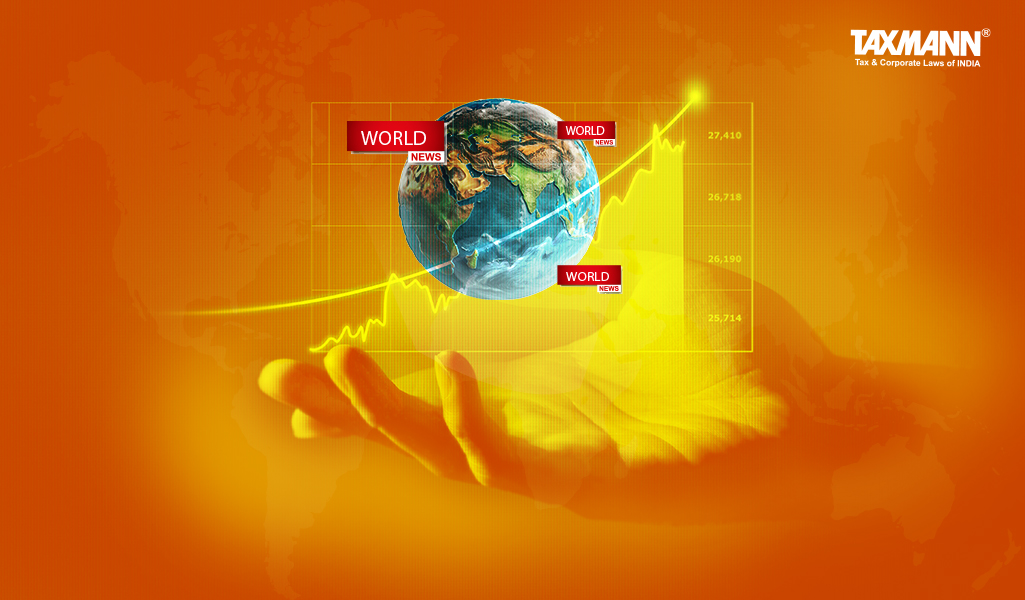[World Tax News] Denmark to Implement World’s First Carbon Tax on Livestock and More
- Blog|News|International Tax|
- 2 Min Read
- By Taxmann
- |
- Last Updated on 16 January, 2025

Editorial Team – [2024] 164 taxmann.com 129 (Article)
World Tax News provides a weekly snippet of tax news from around the globe. Here is a glimpse of the tax happening in the world this week.
1. Denmark to implement world’s first carbon tax on livestock
Denmark, a leading exporter of pork and dairy, will implement a tax on livestock carbon dioxide emissions starting in 2030. This initiative aims to make Denmark the first country to do so and hopes to set an example for others.
In February, government-commissioned experts proposed a tax to help Denmark meet its legally binding target of reducing greenhouse gas emissions by 70% from 1990 levels by 2030. Following five months of negotiations with farming and conservation groups, the Danish government will introduce the first carbon tax on agriculture.
As part of Denmark’s broader strategy to reduce greenhouse gas emissions by 70% from 1990 levels by 2030, Danish Taxation Minister Jeppe Bruus announced a livestock carbon tax. Starting in 2030, livestock farmers will be taxed 300 DKK ($43) per ton of carbon dioxide equivalent, with the tax increasing to 750 DKK ($108) by 2035.
However, with a 60% income tax deduction, the effective cost per ton will begin at 120 DKK ($17.3) and rise to 300 kroner by 2035. This tax will target cows, sheep, and pigs, with cows being the primary focus due to their substantial methane emissions.
According to the UN Environment Program, livestock farming contributes about 32% of human-caused methane emissions. Methane, mainly released by livestock through digestion and manure, is approximately 87 times more potent than carbon dioxide over 20 years. The Danish government aims to achieve climate neutrality by 2045.
2. Australia publishes consultation on tax incentives for Critical Minerals and Hydrogen Production
The Australian Treasury has initiated two public consultations on the proposed Critical Minerals Production Tax Incentive and the Hydrogen Production Tax Incentive, both announced in the 2024-25 Budget. The details of these proposed incentives are as follows:
(a) Critical Minerals Production Tax Incentive (CMPTI)
In the 2024–25 Budget, the Australian Government announced a Critical Minerals Production Tax Incentive to support downstream refining and processing of Australia’s 31 critical minerals from 2027–28 to 2039–40. This incentive of 10% of eligible expenditure on eligible processing and refining is provided as a refundable tax offset. It is available in respect of each eligible facility for up to 10 years from 1 July 2027 and 30 June 2040.
(b) Hydrogen Production Tax Incentive (HPTI)
In the 2024–25 Budget, the Australian Government announced a Hydrogen Production Tax Incentive to support the production of renewable hydrogen from 2027–28 to 2039–40. The incentive of AUD 2 per kilogram of eligible hydrogen produced is provided as a refundable tax offset. It will be available in respect of hydrogen produced from eligible facilities for up to 10 years between 1 July 2027 and 30 June 2040
The responses to these consultation can be made until 12 July 2024.
Source: Critical Minerals Production Tax Incentive (CMPTI)
Hydrogen Production Tax Incentive (HPTI)
Click Here To Read The Full Article
Disclaimer: The content/information published on the website is only for general information of the user and shall not be construed as legal advice. While the Taxmann has exercised reasonable efforts to ensure the veracity of information/content published, Taxmann shall be under no liability in any manner whatsoever for incorrect information, if any.

Taxmann Publications has a dedicated in-house Research & Editorial Team. This team consists of a team of Chartered Accountants, Company Secretaries, and Lawyers. This team works under the guidance and supervision of editor-in-chief Mr Rakesh Bhargava.
The Research and Editorial Team is responsible for developing reliable and accurate content for the readers. The team follows the six-sigma approach to achieve the benchmark of zero error in its publications and research platforms. The team ensures that the following publication guidelines are thoroughly followed while developing the content:
- The statutory material is obtained only from the authorized and reliable sources
- All the latest developments in the judicial and legislative fields are covered
- Prepare the analytical write-ups on current, controversial, and important issues to help the readers to understand the concept and its implications
- Every content published by Taxmann is complete, accurate and lucid
- All evidence-based statements are supported with proper reference to Section, Circular No., Notification No. or citations
- The golden rules of grammar, style and consistency are thoroughly followed
- Font and size that’s easy to read and remain consistent across all imprint and digital publications are applied



 CA | CS | CMA
CA | CS | CMA
